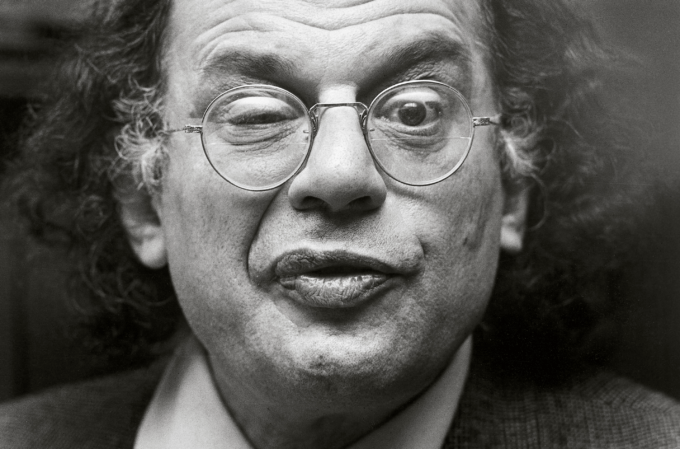In the last decades, Democracy has become “just another word,” a political force that allowed Wall Street financiers, corporate elites, and global speculators to siphon a major portion of the world’s wealth into their bank accounts. Rejecting neo-liberalism and globalism, the radical left and extreme right grow in popularity, each with competing visions of freedom, liberty, social awareness, cultural definition, and economic progress. They defy each other on most issues and bind together on other issues — respect for national sovereignty, distaste for foreign wars, and antipathy to excessive interference in the media, educational, and political institutions by Jewish groups that favor the foreign nation of Israel and are complicit in Israel’s genocide of the Palestinian people.
The major of MAGA (make America great again) are combining with the minor of MADA (make America democratic again) to create MASA (make America sane again). Unexpected support for the Palestinians has come from those in Trump’s MAGA universe. Rep. Marjorie Taylor Greene (R-Ga.) called Israel’s actions in the Gaza Strip a “genocide.” Former congressional representative, Matt Gaetz, and political strategist, Steve Bannon, “are among those condemning Israel’s actions and warning that the issue is a political liability for the Trump administration with the president’s base.” Candace Owens, whom the Washington Post called “the new face of black conservatism,” conservative podcasters Tucker Carlson and Joe Rogan, and white supremacist Nick Fuentes have described Israel’s actions in Gaza as genocide. Kevin David Roberts, the president of the ultra-conservative think tank, Heritage Foundation, defended Tucker Carlson’s interview with white nationalist Nick Fuentes, whose acceptance into the podcast atmosphere breaks a tradition of not allowing the questioning of an inordinate amount of Jewish power and influence in American political, media, educational, and financial life.
It was not too long ago that charges of undue influence in political and economic affairs by American Jews were uttered in “safe rooms” and squashed with vengeance when publicly said. A Jewish person who questioned the practices of his fellow worshippers or Israel received the title of “self-hating” Jew. I remember a Jewish person, who allied with a nationalist group that accused Jews of unfair practices, being hounded into suicide. In all walks of life — political, religious, entertainment, sport, business, education, culture — the slightest accusation that Jews or Israel behaved improperly was met with standard expressions — self-hating Jew, canard, blood libel, holocaust denier, ant-Semite, anti-Semitic trope, Jew hater, and anti-Jewish screed. Accusations were never answered; an adjective was sufficient to demean and cancel the voice and the person who dared to make the accusation. Times have changed.
Attention to the genocide has escalated. A Gallup poll finds that only 32 percent of Americans approve Israel’s military action in Gaza, a 10-point drop from September 2024.
The sudden rise of antipathy to Zionist Jews, expressed by fellow Jews, elates and surprises. One example is “We Have Talked Enough About Ourselves” by Ben Moser, a long and complete essay of how Zionism has betrayed Judaism. Despite the shift in public attitude and tone, it remains frustrating to realize that what has been said and proposed for decades to halt the genocide has not stopped the trajectory.
Challenging genocidal Israel and its worldwide followers who deceive humanity and blithely decimate all those who are a barrier to an ethnically pure and Greater Israel has been difficult. Each day, in Lebanon, Syria, Gaza, and the West Bank, Israel military kills at will, deciding who lives and who dies. No reason to ask how this can be; we know that a small group controls a sufficient amount of the American pie and has used the largess to steer the media into manipulating public opinion and bribe the political system to support Israel’s objectives.
Although hostility toward Jews as American Jews and not as Zionist Jews has always been minimal compared to expressed and overt animosity to Muslims, Arabs, Blacks, Chinese, Catholics, Mexicans, immigrants, and transgender people, organizations combating the non-existent anti-Semitism are vocal and prolific. The country’s wealthiest, best-educated, healthiest, and overly represented group in finance, university leadership, sports management, medical and legal professions, and government gets magnitudes more attention to being victims of prejudice and hostility than those who suffer severe social, economic, and political difficulties due to their creeds. Much of this anti-Semitic farce is obviously contradictory. One of the several organizations fighting rampant “anti-Semitism” is a shadowy organization, Stop anti-Semitism. They herald that their “findings are nothing short of alarming.”
- 55% of Jewish students have personally been victims of antisemitism at their schools.
- 43% did not feel safe enough to report the incidents. Of those who did report, a staggering 87% believe their school failed to properly investigate.
- 43% hide their Jewish identity from their classmates out of fear.
- 72% feel unwelcome in certain spaces on campus simply for being Jewish.”
- 67% say Jews are completely excluded from their schools DEI initiatives.
- 69% are blamed for the actions of Israel—actions they have no control over.
- 67% feel their university did not take sufficient action to protect Jewish students in the wake of the 10/7 massacre.
- And perhaps most heartbreaking: 43% would not recommend their school to fellow.
Good reasons for the “findings.” The Times of Israel reports,
For many American college students, a recent uptick in already high campus hostility to Israel and Jews is shaping a new wave of aliyah, Hebrew for immigration to Israel, turning an embattled student identity into a commitment to build a life in the Jewish state.
Exaggerations (anti-Semitism??), paranoia, playing victim, displaying inferiority complexes, and guilt feelings. No examples of violence against Jewish students. Plenty of examples of physical and social violence against campus demonstrators, including Jews. The reality is that the mass of college students do not want to associate with those they consider directly attached to committing the genocide. Jews have become the most hated people on the globe. Other contradictions.
New York University announced a “seven-figure donation” to create a center to study and combat antisemitism shortly after the Oct. 7 terrorist attacks, and other schools including the University of Michigan and Brandeis University launched similar programs.” Something wrong here.
How did Hamas’ attack on Israelis provoke anti-Semitism against American students? Why haven’t schools created centers to combat discrimination, prejudice, verbal and physical attacks on Arabs and Muslims that proliferated after October 7? From Finding My Grandmother’s Ma’amoul Cookie in Brooklyn by Nadine Apelian.
After October 7, it began with a barrage of words on social media and school pickups. Not at us, but around us, and then directly at them. I got a call from the school nurse one afternoon: my 8-year-old daughter had thrown up. When I arrived, she told me that a group of kids had called me and my mother “terrorists.” My 6-year-old son came home confused, asking why his friends kept wondering why he wasn’t “on the side of the good guys.”
Doug Carter, superintendent of the Indiana state police, said “his officers broke up a tent encampment on campus last year because of speech that was “encouraging the death of the Jewish people globally.” His reply to a public radio reporter who told him that “Jewish students had been active in the protests, including holding a Passover Seder at the encampment, and that they had not heard antisemitic comments” was, “That’s not correct; go on to the next question because I saw it with my own two eyes.”
Every issue is scrutinized in how it affects Zionist Jews and their precious genocidal Israel. The importance of Zohran Mamdani winning the mayorship of New York City is diverted from social-democratic relationship to anti-Zionist opinions and the possibility he will not purchase Israel bonds. Jonathan Greenblatt, the Anti-Defamation League (ADL) chief, announced a “Mamdani Monitor,” a public tracker of new York City mayor elect Mamdani’s policies and personnel appointments that the ADL views as threatening Jewish security. Greenblatt stated that the “fierce animosity toward the Jewish state has characterized his entire time in public life” and that “he surrounded himself with people who are notorious for their antisemitism.” What is “Jewish security,” where is this “Jewish state,” and, if Greenblatt means Israel, what is wrong with joining the billions of the world population in having a “fierce animosity toward the Jewish state?” Greenblatt’s aggressive words are defamatory; he should be sued for defamation and indicted for inciting violence.
Contradiction – Zionist Jews consider themselves a nation, part of a foreign nation within their birth country, and howl anti-Semitism when loyalty to their native country is questioned.
Contradiction ─ Zionists have national Zionist organizations joined to the World Zionist organization (WZO), whose office is in Tel Aviv. Hundreds of organizations throughout Europe and North America raise money and funnel the funds to Israel. Each year, the Z3 Conference boasts it “brings together top thinkers, educators, activists, artists, community leaders and more from across the Jewish world. Through bold conversations and dynamic panels, we explore the biggest questions facing Israel, the Diaspora and the Jewish future.” All howl anti-Semitism when Zionism is termed an international conspiracy.
A fifth column of several hundreds of thousands of Israel dual citizens, tourists, residents, and supporters in the U.S. operate for the benefit of Israel. Daily revelations of their nefarious operations are not countered by U.S. intelligence and policing agencies and have no effect on their continuous manipulation of American institutions. More recent activities.
The Times of Israel, “Inside Israel’s ‘Esther Project’: DOJ filings reveal paid US influencer campaign amid AI-powered PR blitz,” by Asaf Elia-Shalev, 1 October 2025, Updated: 10 November 2025.
The filings reveal that a firm called Bridges Partners LLC has been hired to manage an influencer network under a project code-named the “Esther Project.” In its disclosure, required under the Foreign Agents Registration Act, Bridges said its work was intended to “assist with promoting cultural interchange between the United States and Israel” and specified that the engagement runs through a German division of the global PR firm Havas. Attached documents show that the firm, owned by Israeli consultants Uri Steinberg and Yair Levi, was formed in June 2025 in Delaware and soon after received nearly $200,000 to recruit and coordinate US-based social media influencers.
The article reveals that the “Esther Project” campaign complements Israel’s $1.5 million per month contract with Brad Parscale, Salem Media’s chief strategy officer, and a former campaign strategist for President Donald Trump.
Filed on Sept. 18, Parscale’s firm Clock Tower X LLC registered as a foreign agent for Israel’s Ministry of Foreign Affairs, with Havas again serving as intermediary. The contract calls for “strategic communications” to combat antisemitism in the United States. Underlying documents reveal plans to deploy AI-driven tools: monthly SEO campaigns using the MarketBrew AI platform and efforts to shape outputs of GPT-based chatbots.
Parscale’s Israel campaign promises to produce 100 ads or pieces of content each month, plus 5,000 different variations of those ads, a level of output that likely requires automated tools.
The Quincy Institute for Responsible Statecraft, a “think tank” that examines U.S. foreign policy, reports that “Israel wants to pay US pastors a stipend to spread the word.”
A newly-created firm called Show Faith by Works is embarking on a “geofencing” campaign to target Christian churches and colleges across the American Southwest with pro-Israel advertisements. The pastors and congregations themselves are seemingly unaware of this campaign, and some have concerns with Israel’s methods to target Christians.
According to the firm’s filing under the Foreign Agents Registration Act (FARA), Show Faith by Works will “geofence the actual boundaries of every Major (sic) church in California, Arizona, Nevada, and Colorado (sic) and all Christian Colleges during worship times” and then “track attendees and continue to target [them] with ads” on behalf of Israel.
Nations, Human Rights organizations, United Nations agencies, and a great mass of the world’s population accuse Israel of oppression, apartheid, and genocide, all the great things, and Israel continues uninterrupted in oppression, apartheid, and genocide. The principal reason is due to U.S. military, financial, and moral support for the oppressive, apartheid, and genocidal nation. The support comes from a double whammy of coopted American government officials, coopted by organizations that disburse campaign funds from Jewish groups and financiers and from a coopted media that accepts contributions from Israel supporters in exchange for a slight control of their media presentations. Stopping the money flow from Israel’s supporters to Israel’s enablers is the key to stopping Israel in its genocide of the Palestinian people. But, how?
Getting the job done.
Managed boycott, already imposed on Israel, should turn inward, and be imposed on all individuals, companies, media, institutions, agencies, Uber drivers, whoever walks and talks for Israel. Don’t buy from them, don’t sell to them, don’t invest in them, don’t lend to them, don’t talk to them, and don’t give them air to breathe. List the names silently, vocally, throughout the Internet, on parchment, and in the sky — a steady stream of invective and call to action that empties the pockets of those who supply dollars that purchase deaths.
Exposing and hindering the charity scams is another consideration.
Not publicized is that genocidal Israel, for decades, has had the second to third highest poverty rate in the 38 OECD countries. This is due to marginalization of its Arab community, male unemployment in the ultra-orthodox community, prejudice against Ethiopians and Yemenites, insufficient welfare programs, and deliberate means to soak money for apartheid Israel by playing victim and appealing to its worldwide Jewish and Christian followers. The massive amount of funds from the charities are either directly used to increase Israel’s military capability or serve to divert funds needed for welfare to Israel’s military industry and land appropriations. A few examples of the tens of “charitable organizations.”
International Fellowship of Christians and Jews (IFCJ)
Founded in 1983 by Yechiel Eckstein, its mission is to promote understanding and cooperation between Jews and Christians, and provide humanitarian aid for the people of Israel. IFCJ states, “With so many Jewish people living in unthinkable conditions right now in Israel and around the world (five to ten) — including innocent children, families, and elderly Holocaust survivors (are there any young among the few who have already managed well for the last 80 years?) — please make the most generous gift you can.”
Christians in Defense of Israel
There has never been a more important time for Christians and Jews to stand in solidarity with Israel and its right to exist as a sovereign nation.
Samaritan’s Purse teams and ministry partners.
Offer various forms of relief to the Israeli people following the Oct. 7 attacks. “We are providing 21 new ambulances, including seven that are armor-plated to guard against sniper rounds and other attacks.”
Jewish National Fund
Supports evacuees who have lost their homes after the Oct. 7 attack, as well as helping families and children with basic necessities.
B’nai B’rith International
Opened its Israel Emergency Fund in order to provide direct aid to Israeli citizens in need.
Friends of the Israel Defense Forces
Supports the needs of Israel Defense Forces.
Jewish Agency for Israel – North American council
Promotes Aliyah and encourages every Jewish person to engage with Israel.
Israel Friends
Committed to protecting the people of Israel by providing essential protective equipment, medical supplies, and humanitarian aid directly where it is needed.
A multitude of other “charities” claim to help destitute Jews around the world; Subtract the Jews in Canada and Western Europe, few who need external assistance, and almost all other Jews are in Israel. These Jews receive aid in improving hospitals, stealing land, building settlements, reinforcing checkpoints, destroying Palestinian life and making killing comfortable for the Israeli military. Just Peace Advocates reports that “in 2022, over 650 entities in Israel received more than $237.5 million from over 190 Canadian charities.” That’s from Canada, whose Jewish population is seven percent of the number of Jews in the United states.
Countering these hypocritical “charities,” who care more for the maniacal Israelis than for their own countrymen, and halting their shipments of American dollars to genocidal Israel has a fourfold approach.
(1) Expose and shame them for the wasted human beings they are.
(2) Have them declared agents for the state of Israel.
(3) Review their tax status.
(4) Label them as terrorist organizations, who are enabling the genocide.
Campaign fundraising
Media control by Israel’s supporter has had less of an effect as Internet web sites have drawn more followers. The Palestinians are beginning to convince the public of their plight and the political arena has shifted slightly, but money still controls most votes and Israel’s supporters have hordes of bucks to contribute to their cause. Noting a shift in public sentiment, with Mamdani elected and a growing number of politicos criticizing Israel, the money people are more willing to empty their pockets for their beloved and oppressive Israel. The 2024 congressional races exhausted $9.5 billion of campaign contributions. Ninety five million citizens must contribute an average of $100 each to raise that amount. Through a variety of schemes, a few of the many of Israel’s billionaire supporters and its army of disillusioned supporters can funnel that same huge amount of funds to a variety of selected candidates
No need to despair, not all congressional races need attention, just almost all of them. Lacking in the political scene are America For All PACs devoted to defeat candidates that represent foreign nations, such as Israel, and America For All organizations to raise money in targeted elections contend foreign lobbies, such as the Israel Lobby, and disable foreign firsters, such as the Israel firsters, with words, deeds, and greenbacks. What loyal American would not join and contribute to those patriotic enterprises?
Meanwhile, all other activities should be intensified — exposing the media manipulations, demonstrating against the genocide and the genocide perpetrators, revealing Israel’s supporters desecration of our democracy, distributing vital information to every American by every available means.
A small clique of rabid and criminal elements have seized the steering wheel of the U.S.S. America and to save their illegal, twisted, and commanding position are now disabling the fabric of American democracy, throttling dissent in the crew by vicious actions. Saving the Palestinians from genocide has escalated to saving Americans from fratricide.
Dan Lieberman publishes commentaries on foreign policy, economics, and politics at substack.com. He is author of the non-fiction books A Third Party Can Succeed in America, Not until They Were Gone, Think Tanks of DC, The Artistry of a Dog, and a novel: The Victory (under a pen name, David L. McWellan). Read other articles by Dan. 








